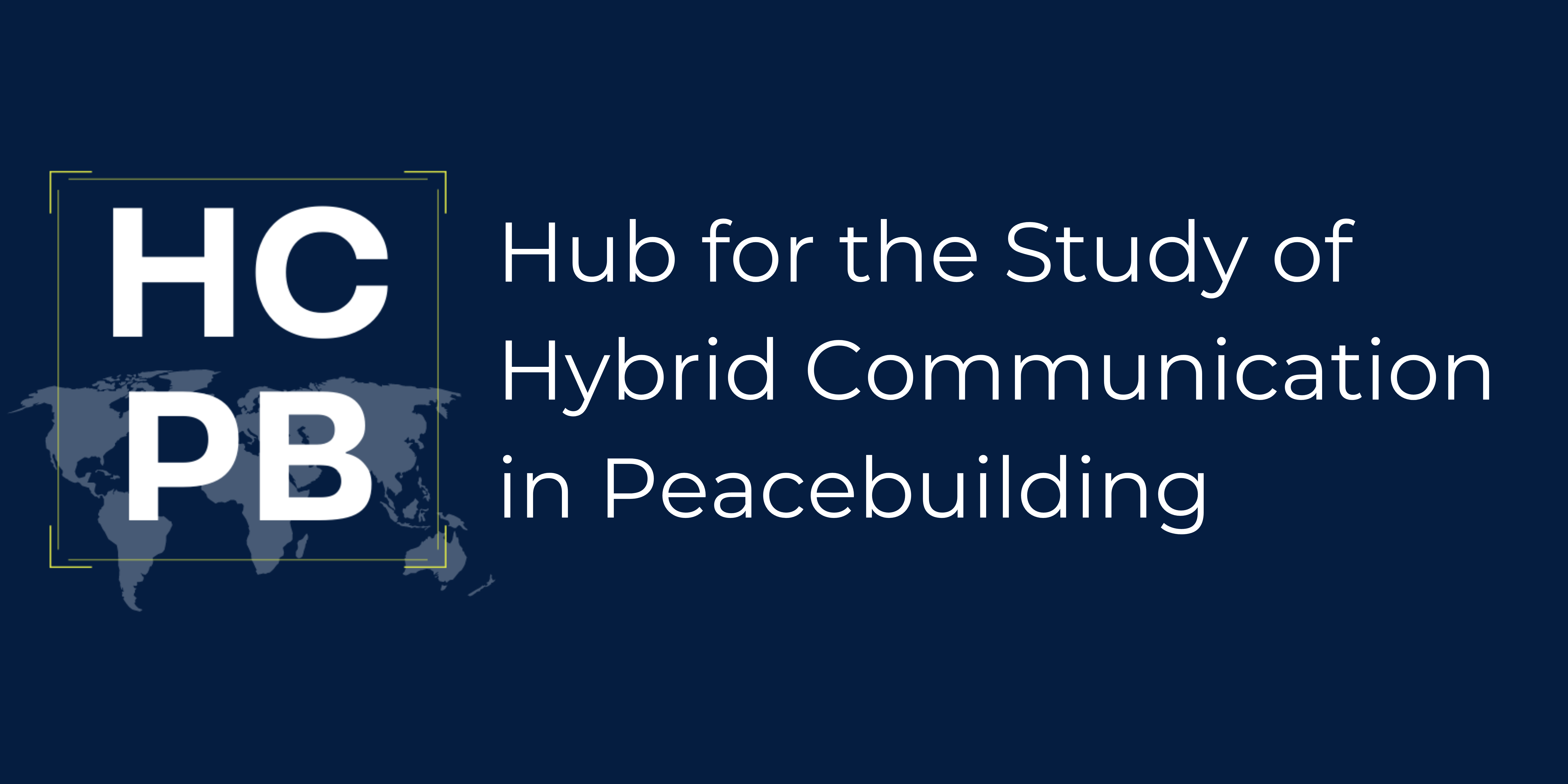By Stephanie Lam. JNL61004, MA International and Public Communication, University of Sheffield.
Introduction
People have the opportunity to hear new ideas and information from one another through storytelling. For the citizens of Nigeria, a country located in the Western Coast of Africa, storytelling via radio programmes contributes to peacebuilding efforts in a post-civil war society.
The Nigerian Civil War, also known as the Nigeria-Biafran War, lasted from 1967 to 1970 and was fought between the Federal Government Military (FGM) of Nigeria and the Republic of Biafra, a state which declared its independence from Nigeria. At that time, Nigeria had three main ethnic groups: the Hausa-Fulani controlled the north, the Yoruba controlled the west, and the Igbo controlled the east. When Nigeria gained independence from Britain in 1960 and established its own government, a group of mostly Igbos military and political leaders led a series of coups. Anti-Igbo violence from other ethnic groups emerged as a result, aggravating long-standing ethnic tensions. This led to Igbo leaders declaring the region of Biafra as an independent state. FGM placed an embargo on Biafra, which lead to humanitarian disasters such as famine. The war ended in 1970, when the FGM captured Biafra’s capital and its leaders surrendered.
Nigerians continued to witness violence among different ethnic groups, and suffered from political and economic inequality, corruption, injustice, unemployment and poverty. Peacebuilding projects from local and international non-profit organisations were created to address structural causes of violence, and provide equitable developments across the country (Posibi, 2021).
One prominent peace-building project was the radio soap opera ‘Story Story’ created by BBC Media Action. The organisation works with local and national media in conflict affected societies and its goal is to help people create media projects which will strengthen knowledge about health, government, and human rights
Nigerian producers and actors created ‘Story Story’ in 2003 to inform people about their civil rights, and to encourage them to participate in activities like public petitions and non-violent protests. The crew used plot lines involving crime and romance, and created relatable characters like market owners and hairdressers, to facilitate discussions about issues surrounding education, health and government The show produced over 500 episodes from 2003 to 2017 on the lives and issues of ordinary Nigerians. ‘Story Story’ aired on 149 local stations across 36 states(Adebisi et al., 2021).The 30-minute segments were broadcasted in Nigerian Pidgin English, a widely spoken language in Nigeria – and featured a range of Nigerian and West African accents. Although ‘Story Story’ was made in Abuja, the capital of Nigeria, the setting takes place in a fictional village called Central Market Community.

Radio soap operas are a popular platform for “entertainment-education” programs (Singhal and Rogers, 1999 p. 254). Pro-development shows and messages are more personable and popular if they have entertaining elements embedded in them. For example a program’s characters and dialogue can persuade audiences to adopt pro-social attitudes and behaviours. Radio itself is a valuable medium for these programs as it is relatively inexpensive and portable, making programs accessible to audience members of less education and lower socioeconomic status, who are usually the primary target audience.
Promoting legitimacy of institutional capacities
One aspect of achieving peacebuilding in conflict-affected areas, is by acknowledging and respecting institutional capacities These include the creation and regulation of political, economic, and communicative institutions.
The call for a stricter and more regulated governmental department is shown in Season 39 Episode 13 ‘Corruption Fights Back’. Florence, a financial auditor for the Central Market Community local government, is sent to investigate the Ikolo Oil Palm Company, a government-funded company that has not generated any profit. Florence discovers forged receipts, fake inventories and is even bribed by the executive of the company to not report the company. When Florence presents her findings, she is praised by Madame Sarah, one of the village chairpersons, and the current director of finance. Madame Sarah questions why the director did not catch the company’s corruption earlier, and decides Florence is a more capable and trustworthy staff member. She places Florence in charge of audits for all government-owned companies and makes her head of the revenue collection department.
By doing this, Madame Sarah recognized and validated the importance of transparency in government-funded companies. Lindstedt and Naurin (2010 p. 304) state that in a transparent institution, people outside or inside the institution can access the information they need to form opinions about actions and processes, which can alleviate corruption. While this action did not create a new division or institution for regulating government companies, putting Florence in charge could potentially create a new attitude and working environment that can uphold the expectations from the finance department. This action can also be interpreted as an act of peaceful cooperation. Florence’s ability to communicate effectively and honestly with her superiors allowed her to get a promotion, as opposed to getting the job based on bribery or force that was not unusual in local governments.
Highlighting peaceful communication
Upon further examination of ‘Story Story’, it is clear that the show demonstrates peace-oriented communication, which is another aspect of peacebuilding. One feature of peace-oriented communication includes perspective taking and Boland and Tenkasi (1995 p. 358) notes that in order for perspective-taking to proceed, people must make “diverse knowledge” available for one another to incorporate into their understanding of a conflicting situation.Purdy (1997 p.9) takes this idea a step further by pointing out that individuals should engage in “effective listening”, by not interrupting one another.
Perspective-taking can be seen in both Season 39 Episode 9 ‘Get Up’ and Season 40, Episode 13 ‘Talk Your Own’ where members of the Central Market community protest against an increase in taxes outside the local government office building.
In ‘Get Up’ community members confront Madame Sarah about having to pay taxes. Madame Sarah attempts to explain paying taxes is a civic responsibility, but stops mid-sentence when one of the protesters says, “Forget about civic responsibility, how can you people (chairpeople) with your big big money, buy big big cars, go to hotels, spend your allowances. . . You now see why people are angry?” (BBC Media Action, 2017). Madame Sarah does not immediately defend herself or respond to the accusations, but it is clear she takes the comments to heart in the next scene, where she is in a private meeting with other chairpersons. She expresses her intent to stop the taxes and cut personal spending of the chairpeople, saying that they are supposed to set an example.
These scenes are interpreted as perspective-taking because Madame Sarah makes the conscious decision to stop explaining the tax situation from her point of view, and instead listens to the concerns of the community members. She also demonstrates another quality of effective listening during the council meeting, which Purdy (1997 p. 9) states is “remembering”, actively retaining what she heard rather than ignoring it. By doing this, Madame Sarah is also treating her community members with dignity and respect, acknowledging that the opinions of every member of the Central Market Community has equal standing with those of decision makers (Shils 1991).
Critiques for consideration
Although ‘Story Story’ has prominent peacebuilding elements, there are some ways the show could have improved its approach. For example, a majority of the episodes jump back and forth between different plotlines – the first five minutes could be a conversation about the local government, the next about someone’s marriage. While this technique keeps listeners engaging with the show, conversations about how to peacefully approach a tense situation feel rather rushed. Feller and Ryan (2012)state that peacebuilding dialogue should be inclusive and holistic, meaning that people should hear different perspectives on a topic and list out possible ways to resolve the issue before making a decision. However, the short segments make it seem as though issues involving the community can easily be resolved between two or three people in a matter of seconds. The ‘Story Story’ crew tries to make up for this by creating separate commentary episodes where an actor in character talks about a government issue in more detail. However, these commentaries feel more like a ‘catch up’ and summarise plot lines rather than explore why peace-oriented conversations were successful or not.
Finally, ‘Story Story’ could have done more to incorporate the impact of the civil war on their communities and memories.The programme prides itself on being a show that can accurately portray everyday people and their issues. However the characters and plotlines make no attempts to remember the war or its consequences on Nigerian society. For example, the effects of civil war can still be seen in the creation of militant and sepeartist groups such as the Indigenous People of Biafra, Movement for the Actualization of the Sovereign State of Biafra, which threaten peaceful coexistence in Nigerian society (Posibi, 2021).
Overall, ‘Story Story’ successfully embodied multiple peacebuilding ideologies and was considered a successful entertainment-education programme by BBC Media Action. Although more could have been done to address inequity and tensions that divide Nigerian society that resulted from the civil war, ‘Story Story’ is an example of how the power of storytelling and radio can support the growth of a nation.
Bibliography
BBC Media Action NG, 2017. “Season 39 Episode 9 “Get Up! Stand Up!”. [podcast] Story Story. Available at: <https://audioboom.com/posts/5763981-story-story-series-39-episode-9-get-up-stand-up> [Accessed 29 November 2021].
Boland Jr, R.J. and Tenkasi, R.V., 1995. Perspective making and perspective taking in communities of knowing. Organisation science, 6(4), pp.350-372.
Feller, A.E. and Ryan, K.K., 2012. Definition, necessity, and Nansen: Efficacy of dialogue in peacebuilding. Conflict Resolution Quarterly, 29(4), pp.351-380.
Lindstedt, C. and Naurin, D., 2010. Transparency is not enough: Making transparency effective in reducing corruption. International political science review, 31(3), pp.301-322.
Posibi A. 2021. Aftermath of the Nigerian civil war (1967-1970): The struggle for peaceful coexistence between parties in post-war Nigeria. Asia and Africa Today. (6)., pp.71-77 DOI: 10.31857/S032150750015266-4
Purdy, M., 1997. What is listening? Listening in everyday life: A personal and professional approach, 2, pp.9
Shils, E., 1991. The virtue of civil society. Government and opposition, 26(1), pp.3-20..
Singhal, A., Rogers, E.M., 1999. Entertainment–Education—A Communication Strategy for Social Change. Lawrence Erlbaum Publishers, NJ

